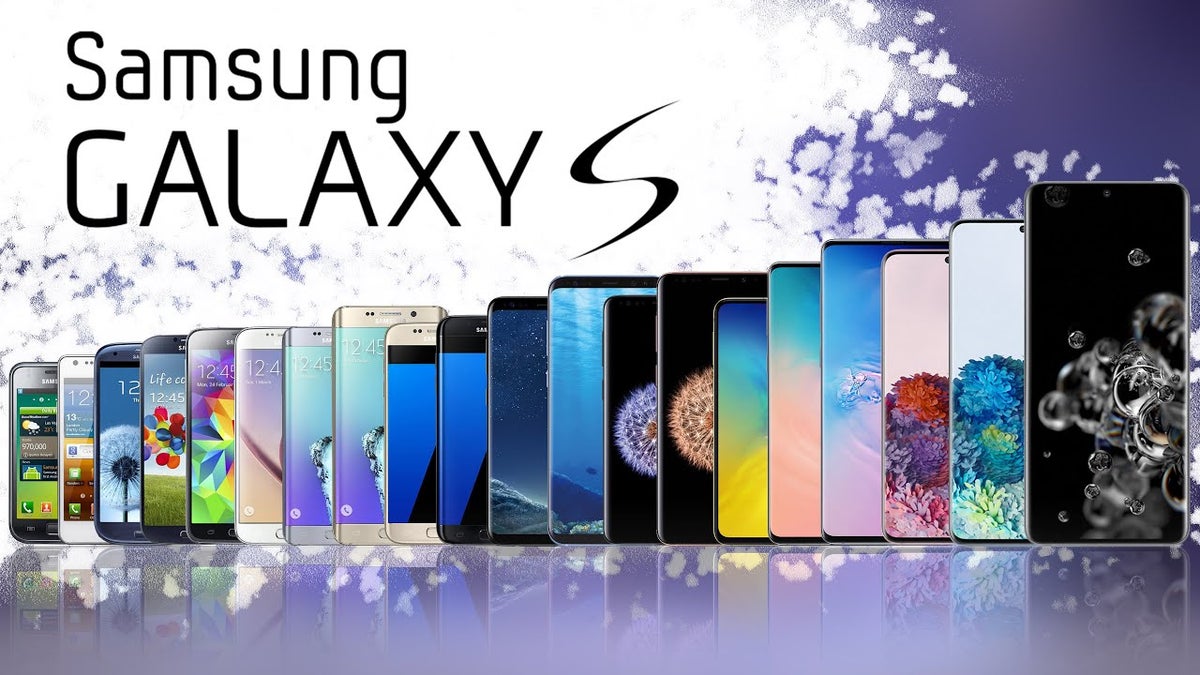Absolutely! Let’s craft a comprehensive 3000-word article about Samsung Galaxy phones, organizing it with `
` and `
` headings for clarity.
Samsung’s Galaxy series has been a dominant force in the smartphone market for over a decade. From the iconic Galaxy S line to the innovative foldable devices, Samsung has consistently pushed the boundaries of mobile technology. This article will delve into the various Galaxy phone families, exploring their key features, target audiences, and historical evolution.
The Flagship Galaxy S Series: Innovation at Its Core

The Galaxy S series represents Samsung’s pinnacle of smartphone engineering. Each iteration introduces cutting-edge processors, advanced camera systems, and stunning displays.
Early Years: Laying the Foundation (Galaxy S to S5)

The original Galaxy S, launched in 2010, marked Samsung’s serious entry into the Android market. It boasted a Super AMOLED display, a rarity at the time, and a powerful processor. Subsequent models, like the Galaxy S2 and S3, built upon this foundation, refining the design and adding features like improved cameras and larger screens. The Galaxy S4 introduced features such as air gestures, and the S5 brought water resistance, solidifying the S series as a premium contender.
The Modern Era: Refinement and Evolution (Galaxy S6 to S10)
The Galaxy S6 ushered in a new design language, featuring a premium glass and metal build, departing from the plastic of previous models. The S7 introduced a Dual Pixel autofocus camera, revolutionizing mobile photography. The S8’s Infinity Display, with its minimal bezels and curved edges, set a new standard for smartphone design. The S9 focused on camera improvements, particularly low-light performance, while the S10 series introduced features like an ultrasonic in-display fingerprint sensor and a triple-lens camera setup.

The Present and Future: Pushing Boundaries (Galaxy S20 to S24)
The Galaxy S20 series focused on high refresh rate displays and advanced camera zoom capabilities. The S21 series refined the design and introduced a more powerful processor. The S22 series emphasized camera improvements, especially in night photography, and the introduction of the embedded S Pen in the S22 Ultra. The S23 series further improved upon performance and camera capabilities, with a focus on computational photography and battery efficiency. The S24 series brings AI powered features, improved cameras, and brighter displays. The S series continues to be the showcase for Samsung’s latest technological advancements.
The Foldable Galaxy Z Series: The Future Unfolds
Samsung’s Galaxy Z series represents the company’s foray into foldable smartphones, offering unique form factors and innovative user experiences.
The Galaxy Fold and Z Flip: Pioneering the Foldable Market
The original Galaxy Fold, despite its initial challenges, demonstrated the potential of foldable displays. The Galaxy Z Flip, with its clamshell design, offered a more compact and fashionable alternative. The Z Fold series aims to provide a tablet-like experience in a smartphone form factor, while the Z Flip series focuses on portability and style.
The Evolution of Foldables: Refinement and Durability
Subsequent iterations of the Z Fold and Z Flip have focused on improving durability, refining the hinge mechanism, and optimizing the software for foldable displays. The Z Fold series has seen improvements in the under-display camera and S Pen support, while the Z Flip series has focused on enhancing the cover screen functionality and camera capabilities. The Z series continues to evolve, with each generation bringing new features and improvements.
The Mid-Range Galaxy A Series: Value and Versatility
The Galaxy A series caters to a wide range of consumers, offering a balance of features and affordability.
A Series Diversity: From Basic to Premium Mid-Range
The A series encompasses a wide range of models, from entry-level devices to near-flagship alternatives. The A1x and A2x models offer basic features at budget-friendly prices, while the A3x and A5x models provide a more balanced set of features and performance. The A7x and A9x models offer near-flagship features, such as high refresh rate displays and advanced camera systems, at a more affordable price point than the S series.
Key Features: Camera, Display, and Battery Life
The A series typically emphasizes camera quality, display clarity, and long battery life. Many A series phones feature multi-lens camera setups, vibrant AMOLED displays, and large capacity batteries. The A series provides a great value proposition for consumers who want a feature-rich smartphone without breaking the bank.
The Budget-Friendly Galaxy M Series: Long Battery Life and Value
The Galaxy M series is designed for consumers who prioritize long battery life and affordability.
Battery Life Focus: Power for the Long Haul
The M series is known for its large capacity batteries, often exceeding 6000mAh. This makes them ideal for users who rely heavily on their smartphones for extended periods.
Online-Centric: Value for Money
The M series is primarily sold online, allowing Samsung to offer competitive prices. These phones typically offer a good balance of features and performance, making them attractive to budget-conscious consumers.
The Rugged Galaxy XCover Series: Built for Tough Environments
The Galaxy XCover series is designed for users who work in demanding environments or participate in outdoor activities.
Durability and Ruggedness: Withstanding the Elements
XCover phones are built to withstand drops, shocks, and extreme temperatures. They often feature IP68 water and dust resistance, as well as MIL-STD-810G military-grade durability.
Key Features: Physical Buttons and Long Battery Life
XCover phones often feature physical buttons for easy operation in challenging conditions. They also prioritize long battery life to ensure they can last through extended shifts or outdoor adventures.
Software and Ecosystem: One UI and Beyond
Samsung’s One UI software provides a user-friendly and customizable experience across all Galaxy devices.
One UI: A Consistent User Experience
One UI is designed to be intuitive and easy to use, with a focus on one-handed operation. It offers a clean and modern interface, with features like dark mode and customizable themes.
The Galaxy Ecosystem: Seamless Integration
Samsung’s ecosystem extends beyond smartphones, encompassing tablets, smartwatches, earbuds, and smart home devices. This ecosystem allows for seamless integration and communication between devices.
Security and Updates: Knox and Software Support
Samsung’s Knox platform provides robust security features, protecting user data from malware and other threats. Samsung also provides regular software updates, ensuring that Galaxy devices remain secure and up-to-date.
Conclusion: The Diverse Galaxy Portfolio
Samsung’s Galaxy lineup offers a wide range of smartphones to cater to diverse needs and preferences. From the flagship S series to the innovative Z series and the value-oriented A and M series, Samsung has a phone for everyone. The company’s commitment to innovation, quality, and user experience has solidified its position as a leader in the smartphone market. With ongoing advancements in foldable technology, camera systems, and AI, the Galaxy universe continues to expand and evolve, promising exciting developments for the future.

